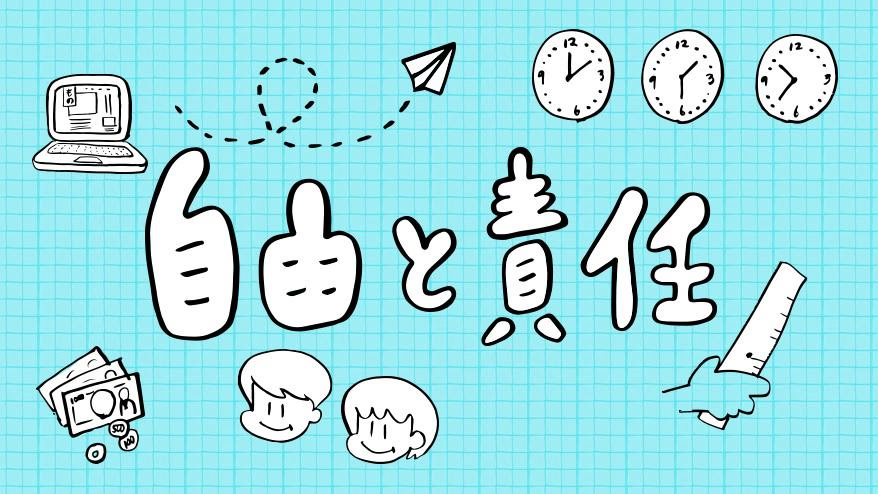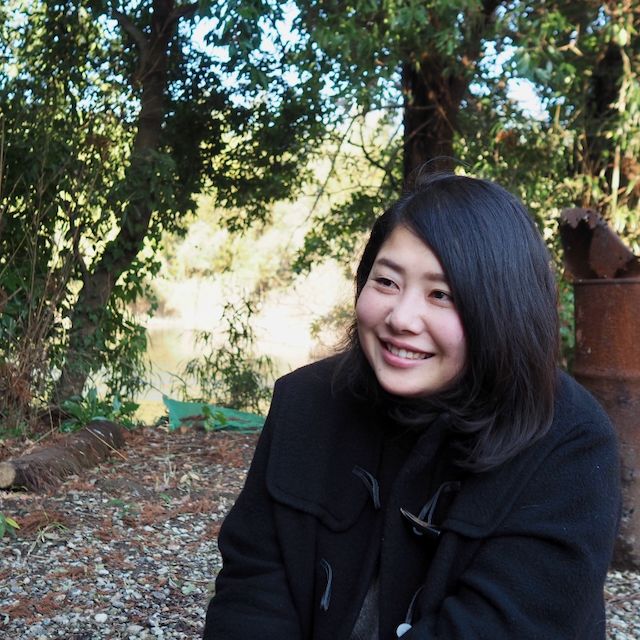Hello to everyone visiting the Monosus site.
My name is Nakajima Nozomi, and I run a job recruitment website called Nihon Shigoto Hyakka .
As a result of writing a job recruitment article, I am now in charge of writing a column that explores the full flex system that Monosus introduced this year from an outside perspective.
In the first episode, we asked CEO Hayashi about the reasons for introducing the system .
From now on, I would like to hear from working people about what is happening since the system changed.
The first people to speak to us were Mr. Tanaka and Mr. Komiya from Coding Factory.
Though they work in the same department, the ways they spend their time seem to be surprisingly opposite.
The opposite from before
Nakajima : Nice to meet you two. I think there are some people who don't know who you two are, so could you please start by giving a brief introduction of yourselves?
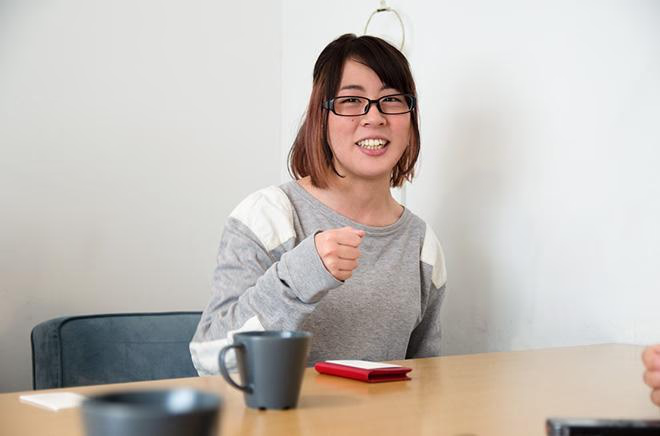
Tanaka : Nice to meet you. I first encountered coding when I was in junior high school and learned HTML to create a website. I wanted to publish the writing I had done.
I did acting in high school, studied film at university, and worked in sales and the food service industry. It's been three years since I joined Monosus with the intention of getting a proper job.
Nakajima : You're the type who wants to try a lot of different things. Thank you.
Komiyama: In my previous job, I worked on video. Video content progresses in a linear fashion. On the other hand, with the web, you can move in all sorts of directions on your own. I found that interesting, so I joined the first Kamiyama Monosasu Juku. I joined the company and a year has passed in the blink of an eye.
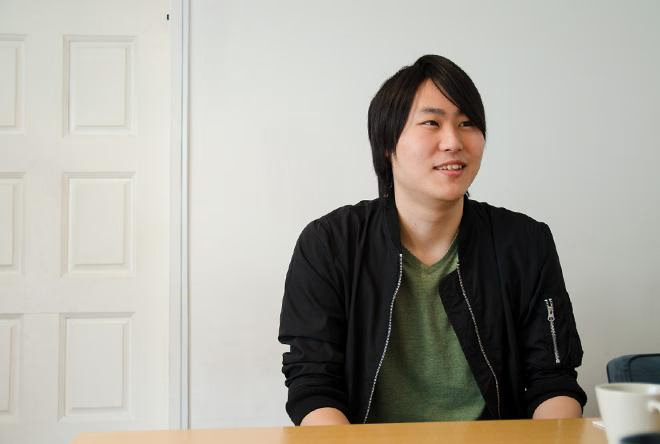
Nakajima: Today I want to talk about the full flextime system. How did you two work before this system started?
Tanaka: About six months after I started working there, I made a mistake at work. My senior scolded me properly at the time. After that, I worked as hard as a professional to do what was required of me.
There was a time when I stayed overnight at the office so much that it felt like I was living there. I'm really good at sleeping on the sofa at the entrance. I can fall asleep easily (laughs).
Komiyama : Now that I think about it, I often saw you sleeping (laughs).
Tanaka : I'm really happy that I'm able to do more now. I'm interested not only in coding, but also in directing the whole picture. I've been running through this for the past two years.
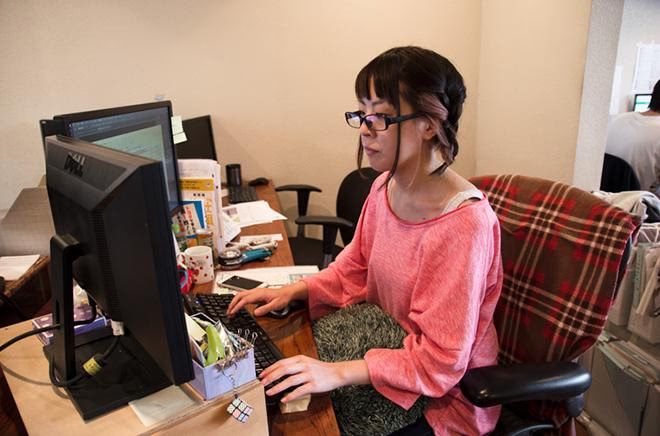
Komiyama: My only experience was at Kamiyama Monosasu Juku, so I spent a year thinking about what I could do in an actual job.
Basically, I want to get everything done quickly so I can take my time. If I'm told to submit something in a week, I want to work hard in about three days and then take it easy.
On busy days, I come in early and want to leave at 7pm. If I can't leave by then, I feel like I've failed. I don't do anything in particular when I get home. I want to have some time to relax and unwind.
While Nakajima Komiyama is very punctual, it's easy to imagine that Tanaka isn't even able to get home by 7pm.
Tanaka
19 Sometimes I didn't go home at all (laughs). I planned my schedule with plenty of time, but I had to deal with customers and other departments, and there were a lot of tasks that I couldn't predict the time for. So it was normal for my work to end up being pushed back.
4 days a week and 6 days a week
Nakajima: Even when we had fixed working hours, you two were using your time differently. How did you feel when you heard about the introduction of the full flextime system?
Tanaka: Yes, I'm free! (laughs)
However, there was quite a bit of work that involved collaboration with other departments, so I was a little worried about how to handle that.
Komiyama : I was hoping that we wouldn't have full flextime. I just thought that it would be fine if I just finished my work quickly.
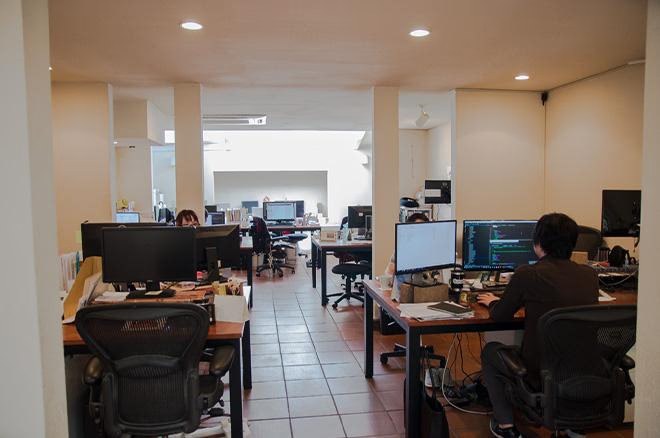
Nakajima: Once the implementation actually began, how did you plan to use your time?
Komiyama : It's a bit extreme, but I've thought of about three patterns, and I'm currently practicing two of them. Basically, I come early and leave early. I come on the first train and leave around noon. That way, I feel like I have an extra day. This is the pattern I want to do the most.
Nakajima : That's pretty fast. What other patterns are there?
Komiyama : When I work with other people, I can't just work in the morning, so I often come in around 9am when the trains start to clear up, and leave at 5pm.
The other one, which I haven't been able to achieve yet, is to work longer days and go to work four days a week. I think it would be better to have a long day off. I want to completely separate the time I work from the time I don't work.
Tanaka: I think it's the opposite. I want to work shorter days and take one day off a week. If I take two days off in a row, it feels like it's been a long time since I last came back to work on Monday. I think it's better to take a full day off so that you don't lose your rhythm.
At first, I set something like my regular working hours, but since I have a lot of work that requires other people, it's inevitably fluid. Now, there are days when I work 12 hours a day, and there are days when I leave after about 1.5 hours.
On the contrary, communication has increased.
Nakajima :So you've been working on creating rhythms. Is there anything else that's changed since you started?
Komiyama : Sometimes, I get a call about work after I go home around noon in Pattern 1. To avoid that, I try to get as much done as possible. I've started thinking ahead to create a situation where I don't have to be there in the afternoon.
Tanaka: Although we spend less time together at the office, we've started to communicate more frequently. Everyone has started checking the shared chat tool more than before.
It's a bit of a hassle when I can't get in touch with anyone at all, but it's not stressful if I can just check the messages when I get home and reply a little. I've been able to use it without any problems.
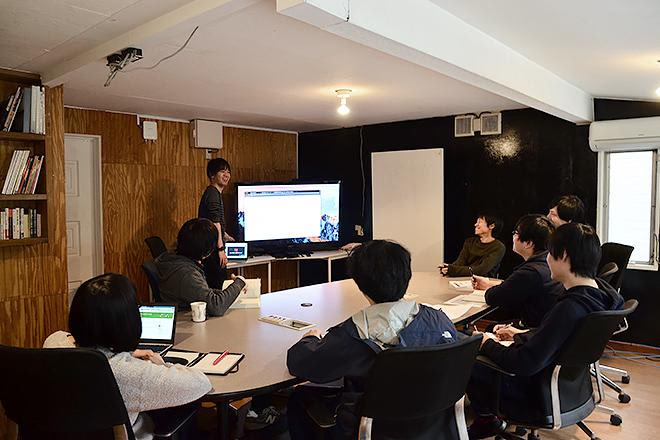
Nakajima: I was surprised to hear that communication has increased. As time and relationships with those around you change, it seems likely that the way you approach your work will also change.
Komiyama: Now that I can work according to my own schedule, I don't waste time. Before, I would plan what I would do that day in relation to the process of creating a page, so I don't think my work process has changed much.
Tanaka : You're so strict. I was always thinking about what was in front of me, and I didn't really think about it. In the end, I ended up just procrastinating.
But now, I'm more conscious of completing my tasks than before. Once I've thought about it and decided to do it, I have free time after that. There are a lot of things I want to do with the remaining time. I want to work hard to use my time more effectively.
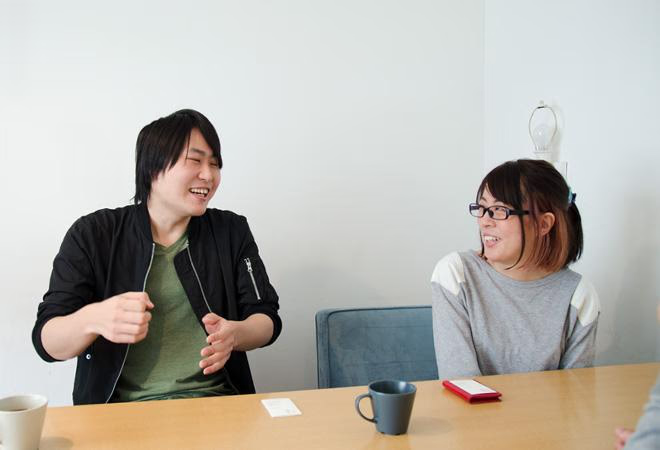
That's all for now. Even though we work in the same department, the coding factory, I was surprised to find that we have completely opposite opinions.
It was impressive to see each of them trying different things while figuring out how to spend their time in a way that feels comfortable to them.
Tomorrow we will introduce people who are trying to enrich their private lives by taking advantage of the full flextime system.
